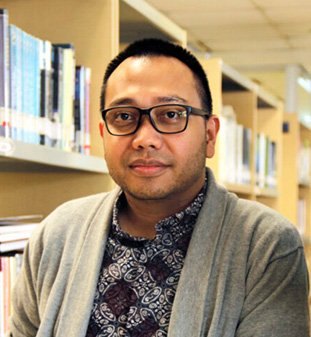Case Document
KOPI KENANGAN’S METEORIC RISE TO UNICORN STATUS
BNI XPORA: SME GO DIGITAL GO GLOBAL
In this era of increasing globalization, exports play an essential role in the Indonesian economy. Exports are activities carried out by companies or businesses in a country by selling their products outside their country of origin. Exporting is an activity that describes the competitiveness of a country's economy. It is also a by-product of Indonesia's diverse experience, innovation, productivity, and human resources quality. To increase exports, the Government seeks to produce half a million exporters in 9 years. Finance Minister Sri Mulyani Indrawati is optimistic that she will be able to print up to 500 thousand new exporters in 2030.
Many companies have dared to export to various countries, but unfortunately, domestic MSMEs have a low contribution value to Indonesia's export earnings. According to the data obtained, only 14.7% of MSMEs export, which is very small compared to APEC member countries that have reached 35% of MSME exports.
BNI Chairman Director Royke Tumilaar said that P.T. Bank Negara Indonesia, Tbk (BNI) is receiving a mandate from the Ministry of State Enterprises to become an Indonesian international bank that can encourage domestic business players to access global markets. Furthermore, he said: "Export-oriented MSMEs have grown quite a bit, and we have seen some cities quite successful. It is an opportunity for BNI to open up export services for MSMEs. P.T. Bank Negara Indonesia (Persero) Tbk continues to explore its international business potential and can connect with the diaspora in various countries.
To support the country's Small and Medium Enterprises (SMEs) to enter the international market and support government programs, in 2021, P.T. Bank Negara Indonesia (Persero) Tbk. (BNI) has presented the BNI Xpora solution (Export UKM Solution), a solution for SMEs to become productive, global, and digital with the motto Export So Easy. Royke said, in providing Xpora, that it is a platform to help MSMEs transform faster and help them go global.
THE SURVIVAL STRATEGIES IN E-COMMERCE INDUSTRY: A CASE OF TRAVELOKA INDONESIA
As almost all activities can be executed with just a smartphone and internet connection these days, companies should consider to provide online services unless they do not wish to stay in the market any longer. That does not exclude tourism industry which involves airlines, hotels, trains and other types of accommodation and transportation. People, including Indonesian, prefer to sit and relax while planning their trip rather than waiting in a long queue just to book their plane tickets. This gives Traveloka the ability to stay on the top of the as number one solution for all kind of travel needs. Traveloka itself was established as the founder, Ferry Unardi, often had difficulty in plane reservations, especially when he wanted to return to Padang, Indonesia, from the United States. Even though it began as a search engine to compare the price of airline tickets from various other sites, Traveloka succeeded in becoming a ticket reservation website, where users can place an order on its official website. A while later, hotel booking services are also available on the Traveloka website.
Traveloka started on early e-commerce era which made Traveloka encountered several obstacles as other e-commerce companies had to deal with at that time. One of them was to gain customer trust. People were not feeling comfortable about giving their money without seeing the products with their own eyes yet. Especially in Traveloka case, where people actually had to hand a big sum of money for it is a plane or hotel reservation. But Traveloka has proved themselves as trustworthy to the market with their security guarantees such as a secure payment gateway (Exhibit 1) and customers’ personal data protection. Traveloka also managed to expand its business in Southeast Asia, namely Thailand, Malaysia, Singapore, Vietnam, and the Philippines. However as time passes by, customer trust is no longer the only obstacle they have to face in this e-commerce industry.
BAKMI GM: LONGEVITY STORY OF A NOODLE RESTAURANT
WARUNK UPNORMAL: THE PIONEER OF CONTEMPORARY NOODLES
ONLINE BASED APPLICATION VS CONVENTIONAL LOGISTIC COMPANY: A CASE OF JNE AND GO-SEND
PT AITI PRIMA INDONESIA (AITINDO): BUSINESS TRANSFORMATION DECISION – A SUCCESS OR FAILURE
It was end of November 2010 when Raymon Setiadi restlessly starring at the ceiling of the boardroom in his office. In couple hours he would has an important meeting with three colleagues discussed about AITINDO performance, their startup company. It would be a serious discussion since the profit of company was not good enough although it has been running for 5 years. Moreover, his greatest concern was the condition of company that still has no specific core business. He felt they were not strong enough in business competition especially facing the rapid development in digital world and the change in consumer behavior. The company must establish the right business model and refine some key elements to successfully achieve the target and ensure the company's sustainability. Raymond rushed took his laptop and walked into the boardroom while still thinking about what to do to ensure company's sustainability. Another question was still remaining; what business model is appropriate in line with the development of digital technology?
CONWOOD HOUSE IN 7 DAYS: DISRUPTIVE BUSINESS MODEL
The competition in the construction material industry is growing rapidly. More and more innovation is being applied in all area in the industry where incremental improvement is no longer an advantage but an essential to survival. Looking at this landscape, where disruption can happen anytime, Conwood Indonesia decided to disrupt themselves by taking an action to leap frog the competition by diminishing the top two most constraints in the building and construction industry: time and working capital.
Following its successful entry into the segment of premium wood using environmentally friendly materials, Derek, the incoming President Director of Conwood Indonesia, faced with the inevitable truth. The market faced structural problem with overcapacity and the influx by import produces. Situation predicted to continue to worsen with new capacity continue to enter the market from new local producers and from tax free imports. Conwood Team decided to capitalize on the unique strength of its technology, unmet demand for affordable housing and the limitation facing the Indonesia construction market. In July 2016, Conwood started to transform itself from a purely manufacturing company into Innovation driven company. With limited resources, how can Derek and his team, within 3 months, act quickly to solve the problems with new innovation while concurrently unravel the issues raised from the innovation itself?
BORNEO ORANGUTAN SURVIVAL FOUNDATION (BOSF): BUILDING TRUST IN DIVERSE STAKEHOLDERS
The case demonstrates the importance of a Value Proposition for a Non-Profit Organization in shaping the organization in order to prevent them from escalating into a crisis and improve performance. The main purpose of the case is to foster a thoughtful organizational transformation through the development of an organization value proposition.
While many cases shown the importance of a value proposition from profit organization. This case illustrates that the concept of value proposition can be used to derive a purposeful organizational change and increase performances.
HUTAMA KARYA ASPAL BETON (HK ASTON): ENTREPRENEUR MINDSET
Budi Prasetyo, CEO of HK Aston, is preparing big agenda that afternoon. He is busy coordinating big projects of his new office HK Aston. As a subsidiary company of Hutama Karya a State Own Enterprises in construction business, HK Aston have specific mission to be a focus company in managing Asphalt and Steel business. One of the big projects on the pipeline is Tanjung Benoa Toll Road in Bali.
First of all HK Aston is a newly startup company set up in 2009 with mission to differentiate services and bring more value to the industry towards better services as a group of businesses.
Main purpose setting up subsidiary company with core business of specific services is to gain focus in asphalt services which value added perceive values. HK Aston business operation is still active during the process of spin off from division under Operation Directorate to become full fledge company.
Moreover Tanjung Benoa Toll road is a big case that need collaboration between new company and existing surely they must have a strong entrepreneurial spirits towards vision of the new company.












